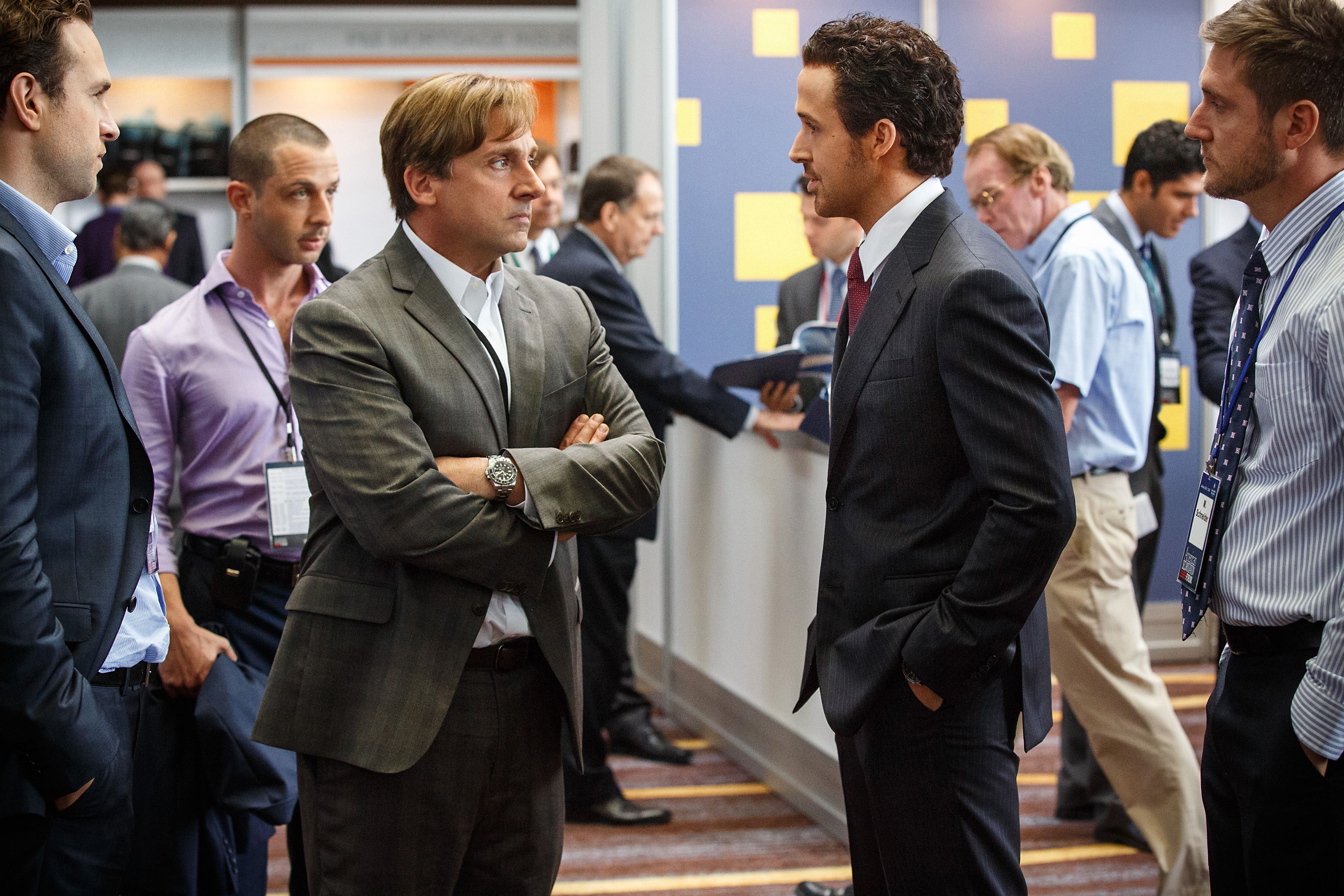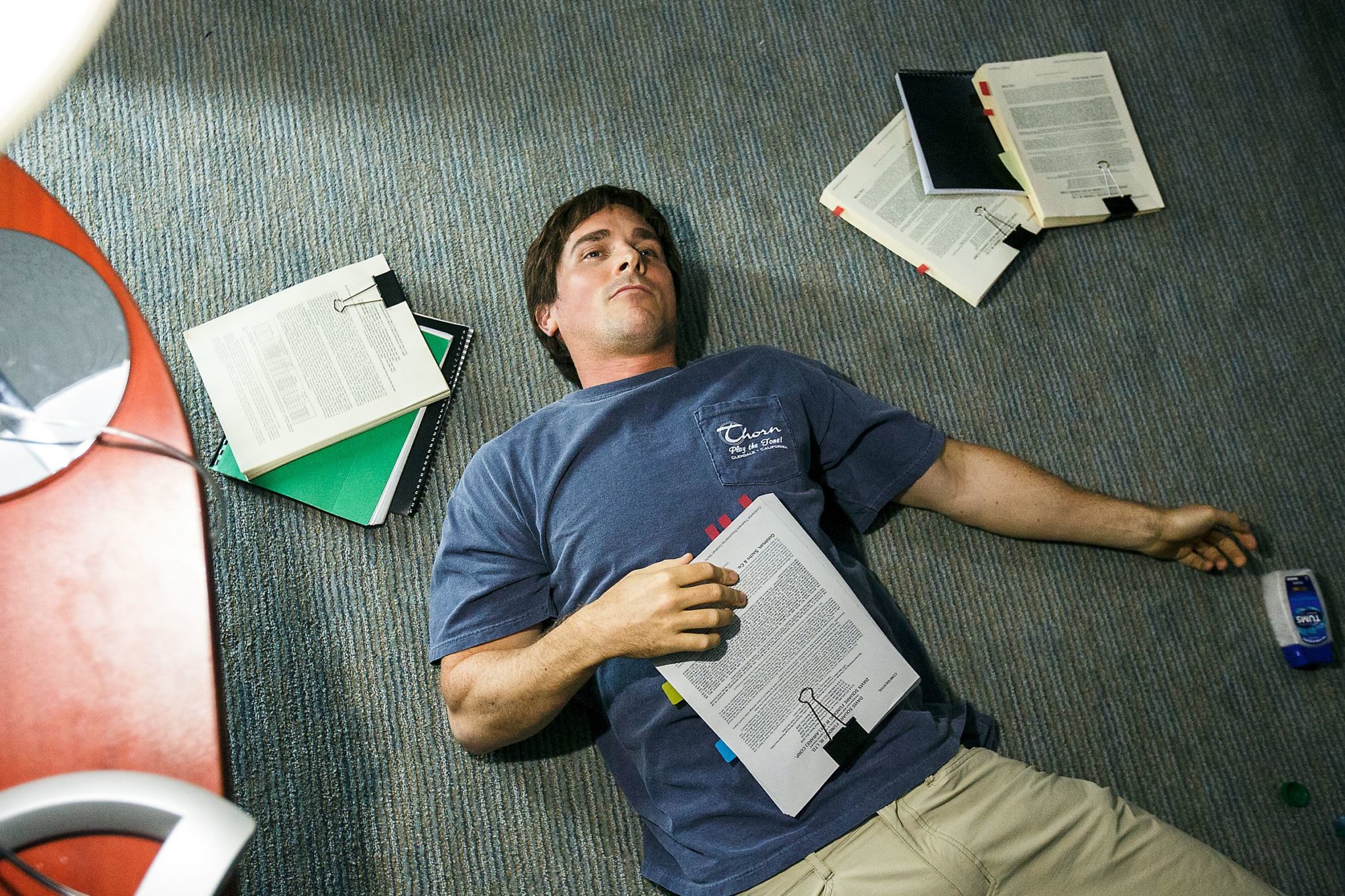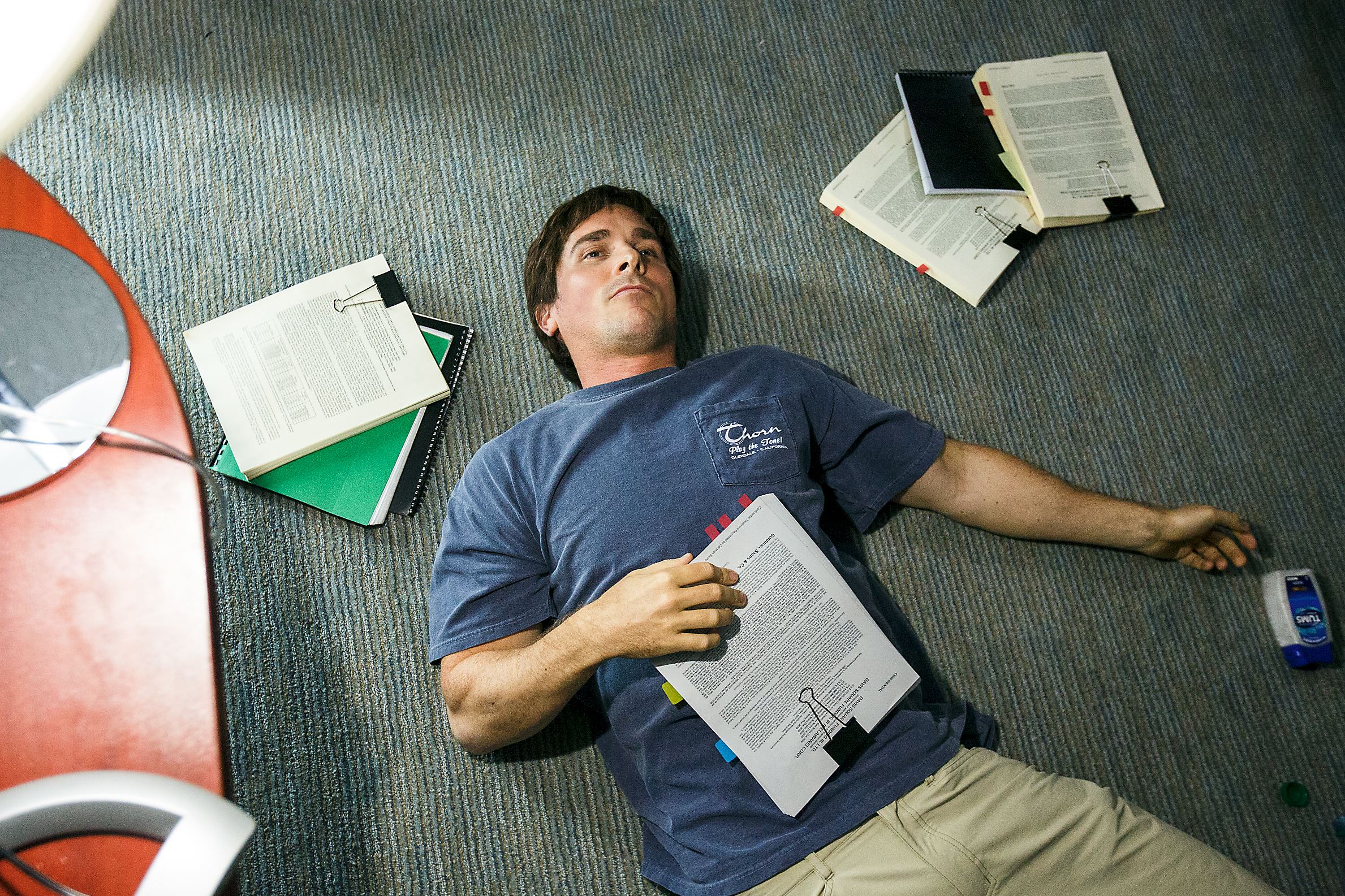LIAM DONOVAN reviews Adam McKay’s Wall Street comedy, ‘The Big Short’.
Having won the Producer’s Guild Best Picture, The Big Short has emerged recently as the surprise favourite, over The Revenant and Spotlight, to take home Best Picture at the Academy Awards. Directed by the unlikely Oscar nominee Adam McKay, best known for his work with Will Ferrell on comedies like Anchorman and Step Brothers, The Big Short follows an array of financial workers from Wall Street who try to ‘short’ the banks in anticipation of the impending 2008 crash of the housing market. With this economic catastrophe preceding the eventual collapse of the American economy, the film sees its protagonists betting against the financial institutions which are secretly bringing the world’s largest centre of cash flow to its knees.
Sounds pretty serious, right? Well, sort of. There’s a lot of trepidation, frenzy and jargon to swallow throughout The Big Short and, as such, a slightly comedic and rather irreverent tone might have just about made this digestible for the average viewer. While the movie makes the gravity of the situation abundantly clear, the subject matter is also approached with a view to making it as accessible and zany as possible, keeping us on board with the antics of the central characters.
The fact that we don’t ever seem to get too bogged down in the complicated details of the crisis is testament to the quality of the overall storytelling, and The Big Short certainly manages to put across its fairly ominous message. There’s not exactly much in the way of hope throughout the feature, yet the story still feels especially relevant and incredibly informative in the way which a film of this nature really should. It doesn’t ever lionise its main players as American heroes or social justice champions, but instead takes a rather ambiguous and detached perspective that leaves it up to the audience to decide.
The Big Short successfully finds a way of entertainingly explaining its fact based story. The film even has cameo appearances from famous celebrities which, although hit-and-miss, did prove somewhat enlightening on occasion. McKay might not be quite worth the directorial nomination he has received, but he does do a competent job behind the camera, and proves himself able to imbue his dramatic narrative with a kind of verve and personality which makes it all the more engaging. He’s also enlisted some very physical actors to play rather heightened and quirky roles that almost demand a kind of absurdity.

Steve Carell stands out as Mark Baum, the moral compass of the movie alongside Brad Pitt’s Ben Rickert, and by bringing his Michael Scott-ish franticness from The Office to the table, along with some cutting sarcasm and a particularly angry demeanour, he breathes the bombastic life into The Big Short that it really needs. Oscar-nominated Bale, who feels a little over-recognised given some of the Supporting Actor performances in the running this year, and the Jordan Belfort wannabe Gosling are both fine in their roles, but more importantly there’s a real sense of commitment from the entire cast, buying in to a movie all about buying in.
There’s no doubting that The Big Short is a really interesting film, with a complex subject matter that is directed at its general audience exceedingly well. However, a certain spark felt missing. The film is by no means bad and it manages to achieve a lot, given how difficult an adaptation of Michael Lewis’ novel must have been, and it certainly earns its Adapted Screenplay nomination for this reason alone. There’s possibly the absence of any real emotional connection, however, to the events depicted on screen, and the film’s efforts at dealing with emotional and personal themes certainly come across as rather jarring and haphazardly orchestrated. In fact, it suffers from noticeable tonal inconsistency throughout, and you’re never really sure whether to laugh or sigh.
While The Big Short is certainly stylish and striking, with its cutaways reminiscent of the best of Seth MacFarlane, its fourth wall breaking and sharp editing, it does get to the point of slightly nauseating overkill. Although the first aside with Margot Robbie in a bathtub was enjoyable for its comedic value and audaciousness, the amount of meta insertions and self-aware interludes start to grate and lose their impact during the film’s second half. It’s worth noting that the movie, much like its second cousin The Wolf of Wall Street, is stock full of bravado and machismo to the extent that, after a certain period of time, you just want someone to win big, get rich, and end the whole façade.

McKay and company seem to throw a lot into The Big Short, but a sense of narrative lethargy plagues the film towards its conclusion. I guess you can only watch bankers and brokers get mad at each other and look exasperated for so long before the novelty wears off. In any case, McKay does a great job transitioning from comedy to drama overall, showing himself capable of constructing a good, and considerably weighty, film with an important message. It may have its inconsistent tendencies, but the movie does blend the severity of the calamitous economic breakdown with a sense of levity and outrageousness very well, and above all else it give its audience a good sense of context for the time in which this disaster was taking place.





